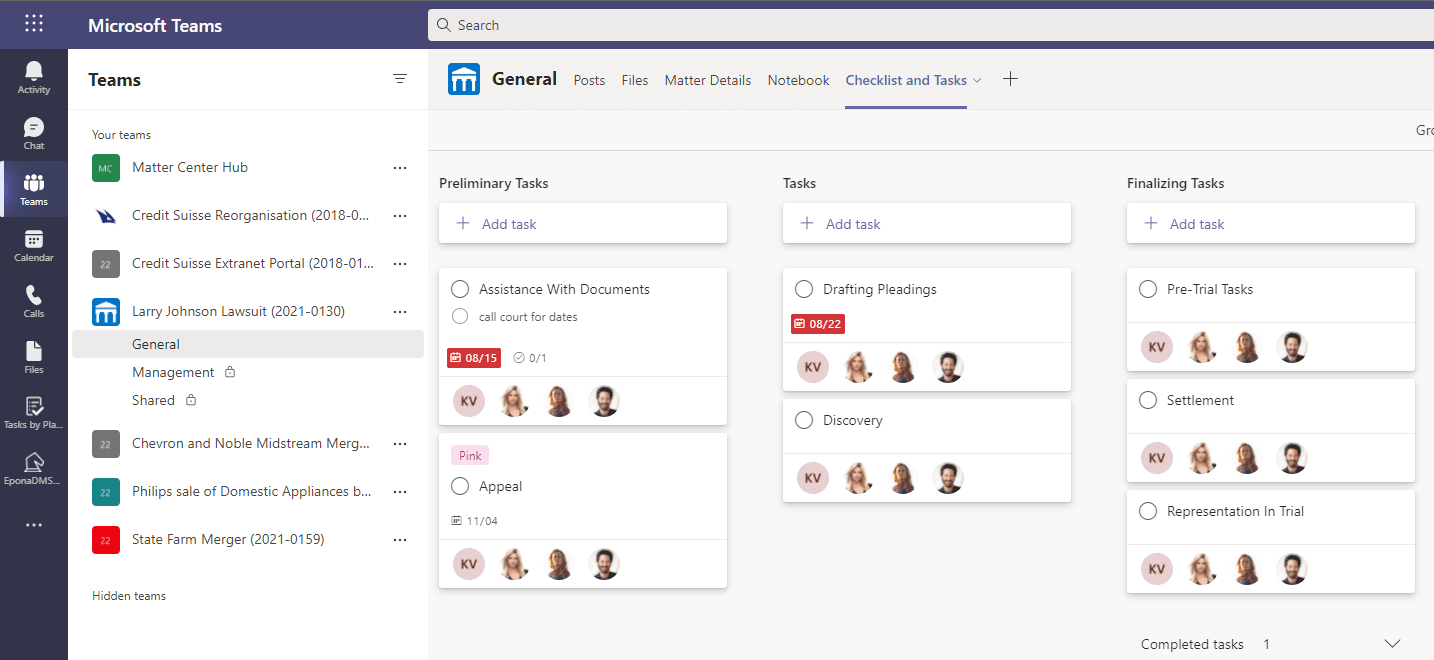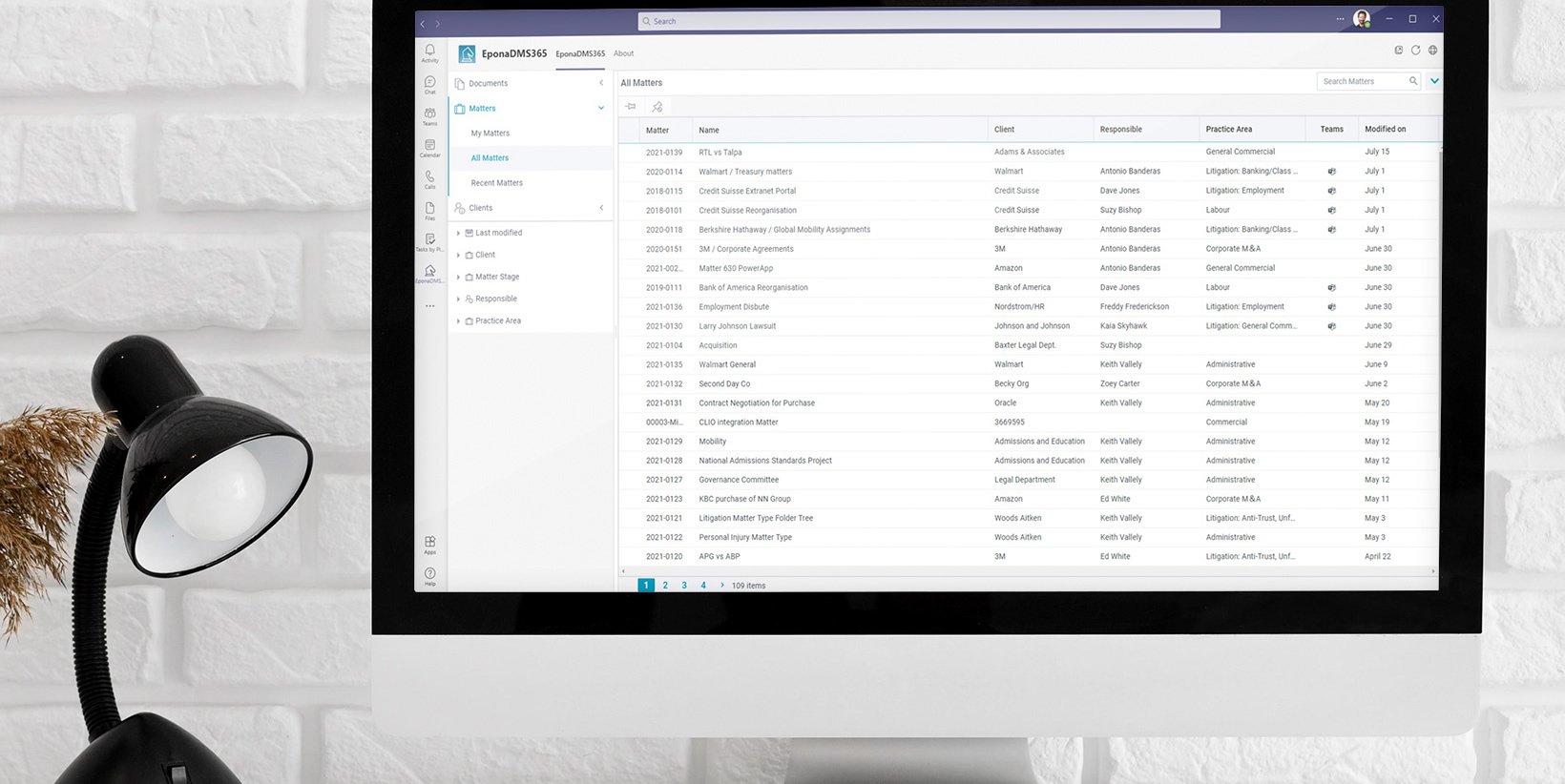 Nov
19
2021
Nov
19
2021
Collaboration on matters is teamwork
In all the years we’ve been talking to lawyers and (corporate) legal counsels, we cease to be amazed by the following: everybody has a different way of working to come to the same result. Every organization has devised it’s own way, some more complex, some more efficient than others, to create documents or matters. But when it gets really tricky is when everybody within the same office has devised their own way to create and manage these very same things.
This, of course, creates lots of inefficiencies (and is error prone) and will lead to information being scattered all over the place. If you add the demands of a client or opposing counsel needing to work on the matter as well, you will find that an internal meeting on how to manage the matter is definitely in order.
Standardization is the way to efficiency
In the end, every legal professional’s end goal will be to have all the information in a matter to be complete, up to date and searchable. So it has be really easy to add information, and you need to agree upon which components a matter should consist of. When working in a team, you need to be sure the contents of the matter are correct.
We like to compare the design of a good matter to following the recipe of fabulous meal in a five star restaurant. The recipe needs to be followed consistently every time and shared with all the preparation staff, where all the ingredients come together, at the right time, so that the meal is prepared exactly as the recipe calls for so that the five star dish, or matter in this case is correctly created each and every time to benefit of the client. The ideal matter is the link between following a predetermined set of rules (templates), and a matter that offers the right amount of freedom for the legal staff involved in working the matter. The foundation is the recipe.
An important condition for realizing this recipe, is a conversation about all the necessary ingredients with your team. Epona Consultants can help you, providing you with best practices from other organizations we have helped in the past, so you can pick the method best fitting to your situation. Don’t chose a messy middle of the road approach, because we believe the defining standards is the way to efficient teamwork.
Cookbook
Epona consultants can guide you through the steps needed to create a perfect and consistent matter, every time, based on Practice Area, Matter Type, Area of Law or any given criteria that suits. For every organization this recipe will look a little different, but our experience will provide you with proven methods and standards so you can always achieve the highest possible quality.
So what are some of the dilemmas we see today?
- Should a matter by default be privileged, or shared?
- Should we only have a few matters privileged and everything else shared?
- Is Knowledge Management put in a separate file, or can we source this from production matters?
- How many folders is the right amount of folders, and can there be too many folders?
- Can matters be accessible from outside of the office, or only from the inside using conditional access?
- Are extranet matters always kept separately from the original, or do we allow clients or the opposition limited access to the matter?
- How do we incorporate things like WhatsApp chats or online meeting recordings in matters?
- Can manage things like court dates directly from the matter?
One of the great emerging trends is collaborating on matters using Microsoft Teams. Teams doesn’t just allow for storing a file or e-mail in a shared folder. It gives you the ability to chat, plan and manage tasks related to a specific matter, with both co-workers and external participants. Regarding document management, we’re seeing a clear shift from locked documents such as “check-in/checkout” to collaboration, where permissions on matters can now be provided with sensitivity labels. These labels allow for very sensitive information or even just parts of document to not be visible to unauthorized users. Not even when sharing a screen in a meeting.

Added value for the client
Clients truly value this collaboration trend. Now all the matters that are relevant to him/her can now be shared and accessed through Microsoft Teams. The most recent status of the matter can be reviewed and e-mail is no longer necessary to share drafts or bits of information. Using the matter related chat in Teams you can have a “WhatsApp like” contact with clients, making it easier for everyone to share information in a safe and trusted way.
By making an early transition from a traditional matter, to a Teams matter you can open a world of possibilities. All that’s left is to invite your local Epona Chef (Consultant) over for a good talk about what your recipe is going to be. Curious how we can help you achieve your 5 star matter recipe? Download our free whitepaper “Using Microsoft 365 as your DMS” for a quick peek in our own kitchen.



